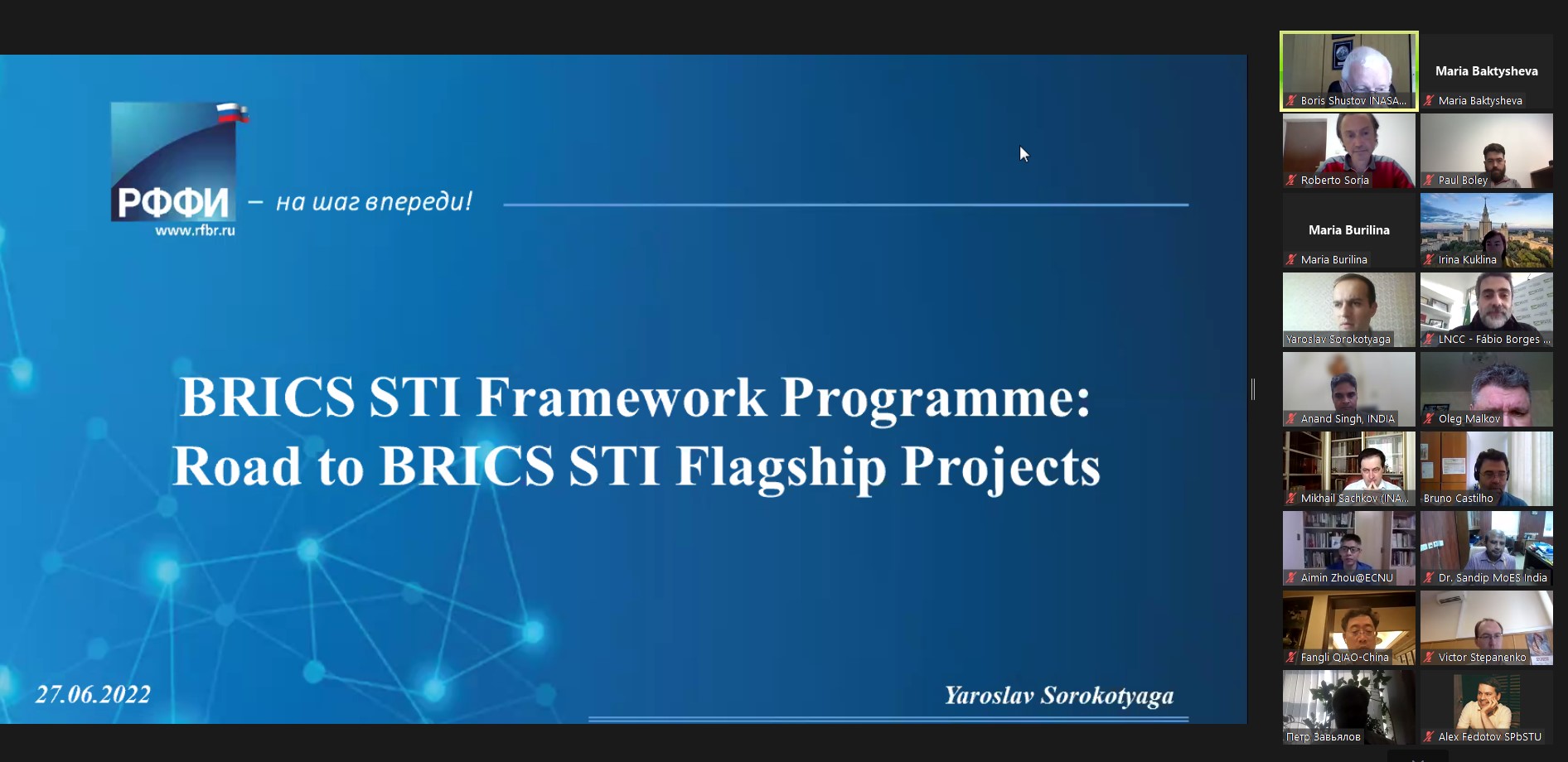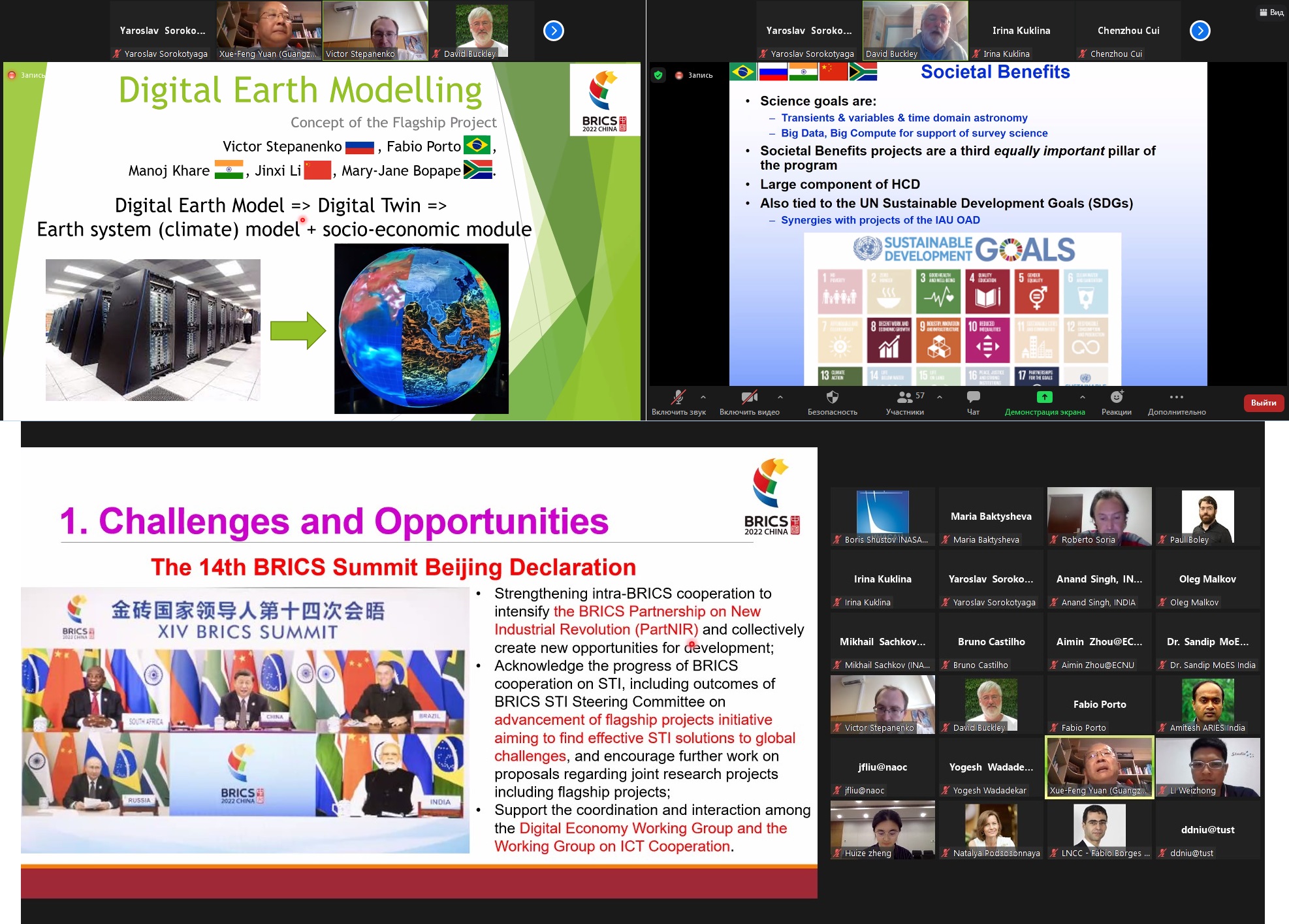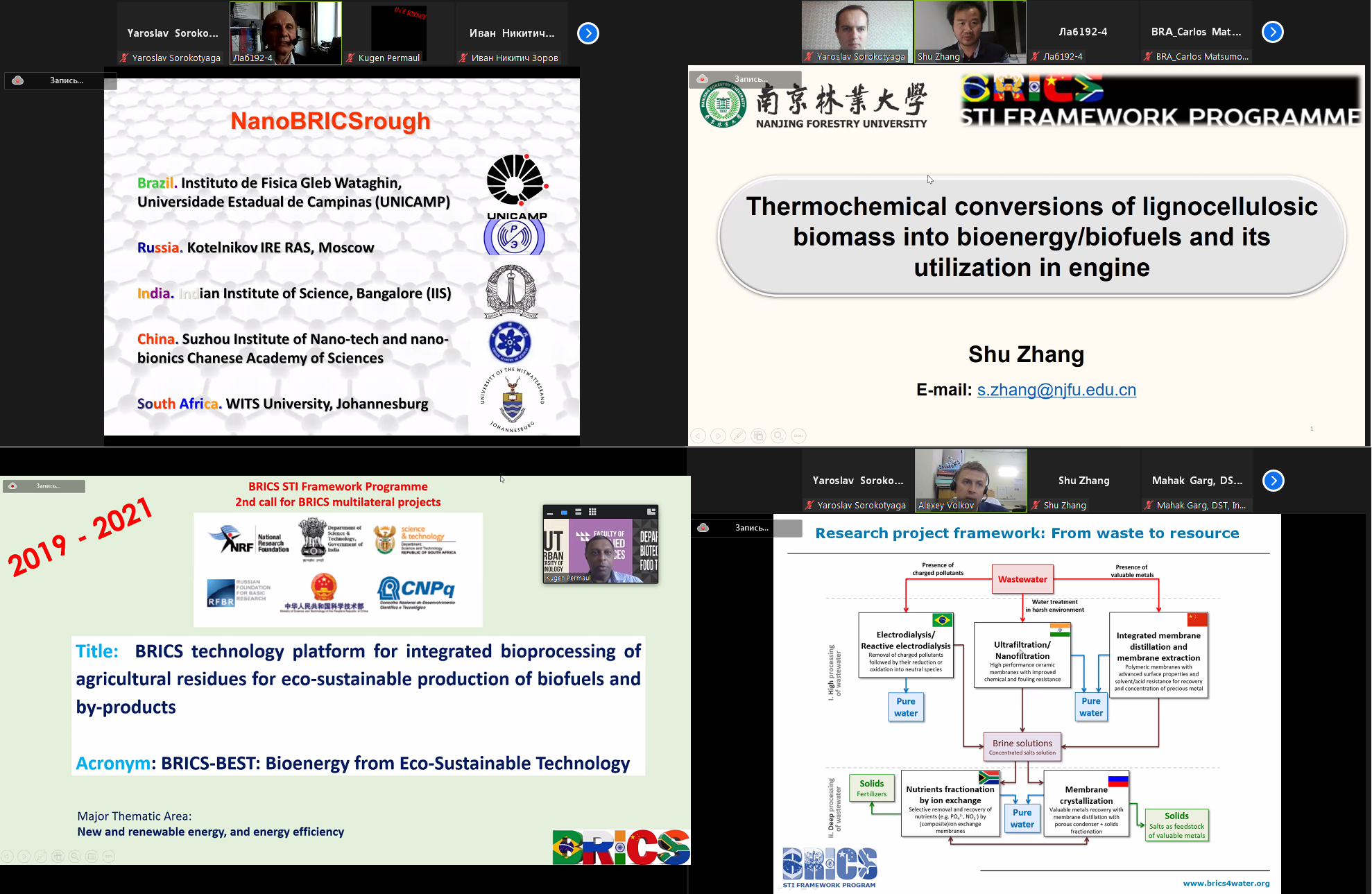

Meeting of the BRICS STI Funding Working Group
“Discussion on BRICS STI Flagship Projects”
27-28 June, 2022
Establishment of the BRICS STI Framework Programme (BRICS STI FP, Initiative) was endorsed by Moscow declaration in October 20015 with the goal of supporting excellent research in priority areas which can best be addressed by a multinational approach. The BRICS STI Framework Programme was launched in 2016 with further announcement of a pilot call for BRICS science, technology and innovation projects the same year. Since 2016 five thematic coordinated calls for multilateral research projects were launched under the BRICS STI FP. In its first 5 years of implementation the BRICS STI FP has contributed towards formation of a truly BRICS scientific identity with more than 4000 research teams from 5 countries involved in preparation of 1500 project proposals in response to the calls. More than 100 multilateral BRICS research projects were funded as an outcome of the regular BRICS STI FP calls. With establishment of long-standing mechanism for supporting excellent BRICS multilateral research projects the BRICS STI funding Working Group is working on elaboration of a new mechanism for supporting research and development projects that are of strategic importance to BRICS member states – so called BRICS Flagship Projects.
BRICS Flagship Projects should focus on global challenges, be of mission oriented approach and address common challenges of the BRICS countries. BRICS STI Flagship Projects should be of greater size and funding comparing to the regular BRICS STI projects and lead to a strong impact, whether it will be a technological advancement, societal or scientific impact. With duration from 3 to 5 years Flagship projects consortia must be comprised of teams from all five BRICS countries and be of interdisciplinary nature, bringing together researchers from at least two fields of science. Depending on the scope and thematic area of the call Flagship projects consortia may consist of a participant from non-academia sector, e.g. representatives of industry, SMEs, NGOs, policy makers etc.

On 27-28 June 2022 in line with development of activities of the BRICS STI Framework Programme the BRICS STI Funding Working Group held workshop “Discussion on BRICS STI Flagship Projects” aimed at discussion of BRICS STI Flagship Projects concept. The meeting gathered more than 60 participants, representing BRICS research funding agencies and policy makers, participants of the selected BRICS research thematic Working Groups and BRICS STI projects as well as other interested actors. The goal of the meeting was to exchange views on the concept of BRICS Flagship Projects, including discussion on global challenges of BRICS strategic importance that Flagship Projects could address, prospective areas of BRICS Flagship projects call for proposals, definition and requirements on potential Flagship project impact and other relevant issues.
The meeting was opened by Yaroslav Sorokotyaga, head of BRICS STI FP Secretariat (Russian Foundation for Basic Research) with information on latest developments of the BRICS STI Framework Programme and concept of BRICS STI Flagship projects, followed by presentations from selected BRICS scientific thematic working groups, which shared their vision of Flagship Projects. David Buckley (South African Astronomical Observatory) presented idea of BRICS Flagship Project in Astronomy that has been in development by the BRICS Working Group on Astronomy. Xue-Feng Yuan (Guangzhou University), Victor Stepanenko (Lomonosov Moscow State University) and Weizhong Li (Sun Yat-sen University) presented three ideas of Flagship projects in areas of computing that were endorsed by the BRICS Working Group on ICT and High Performance Computing. Huize Zheng (The Administrative Center for China's Agenda 21) presented the view of Flagship project on behalf of the BRICS Working Group on Ocean and Polar Science.

After reviewing Flagship Projects proposals that were elaborated by BRICS STI thematic working groups, participants of the meeting had an opportunity to learn about experience of selected BRICS STI Projects that were supported as result of first 3 BRICS STI FP calls and implemented by research consortia comprised of teams from 5 BRICS states. Victor V. Koledov (Kotel’nikov Institute of Radioengineering and Electronics of the Russian Academy of Sciences) as coordinator of “nanoBRICSrough” project selected as result of BRICS STI FP Pilot Call 2016, Kugenthiren Permaul (Durban University of Technology) as coordinator of “BRICS-BEST” project and Alexey Volkov (A.V.Topchiev Institute of Petrochemical Synthesis of the Russian Academy of Sciences) as coordinator of “BRICS4Water” project selected as result of 2nd BRICS Call 2017 and Shu Zhang (Nanjing Forestry University) as coordinator of “TCLB/WBBUICE” project selected as result of 3rd BRICS STI FP Call 2019 shared results of the projects and experience in implementing large BRICS research projects that may be important not only to further improve the BRICS STI FP mechanisms, but also to be used for performing BRICS STI Flagship Projects.
In conclusion participants of the meeting discussed various questions related to the above presentation and concept of BRICS STI Flagship Projects. All together this will be a valuable contribution to finalization of definition for BRICS STI Flagship Projects and finalization of terms for the BRICS STI FP Call for Flagship Projects expected to be prepared by the end of 2022.

Supplementary materials:
- Presentation of the BRICS Working Group on Astronomy (pdf)
- Presentation of BRICS4water project (pdf)











